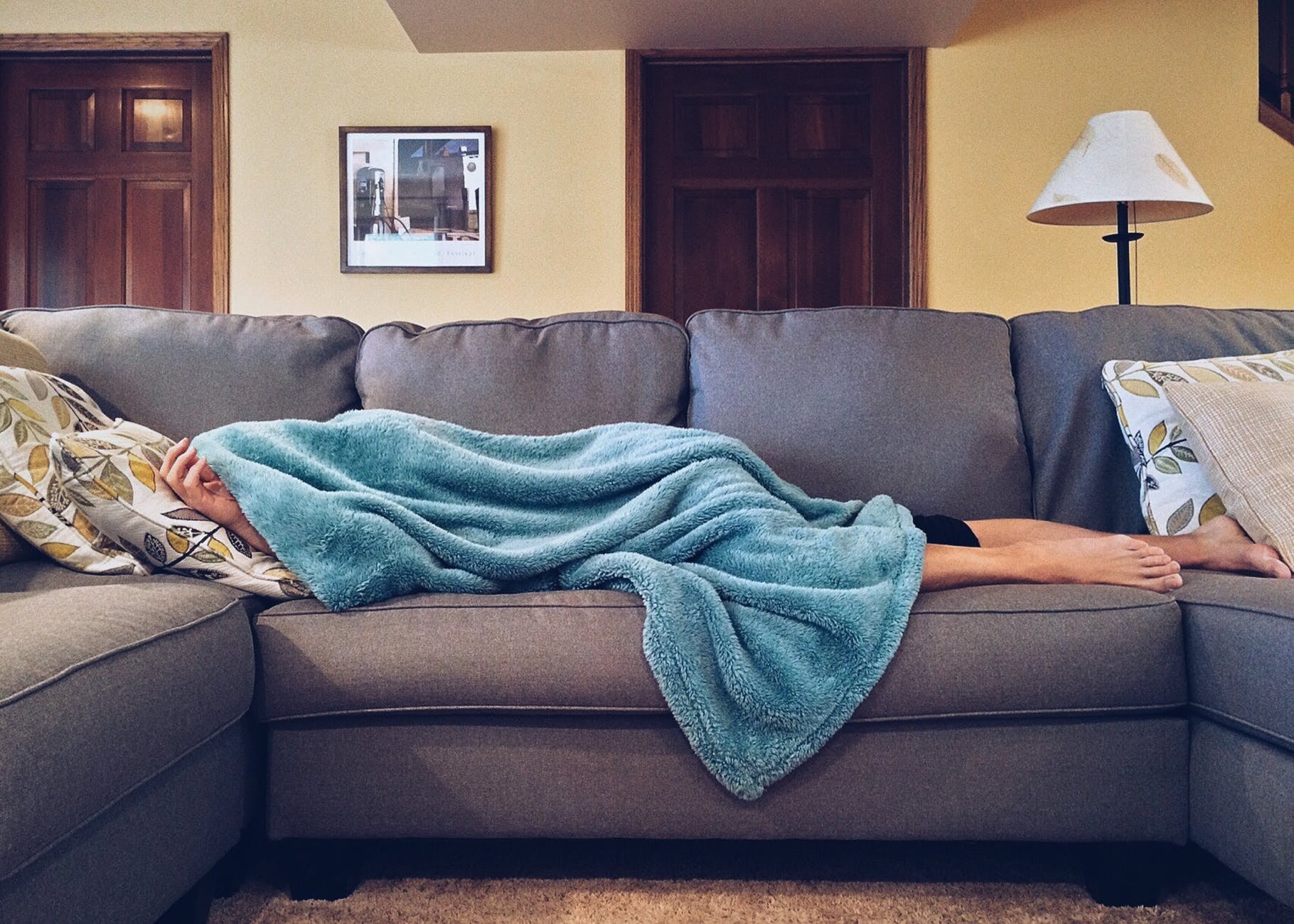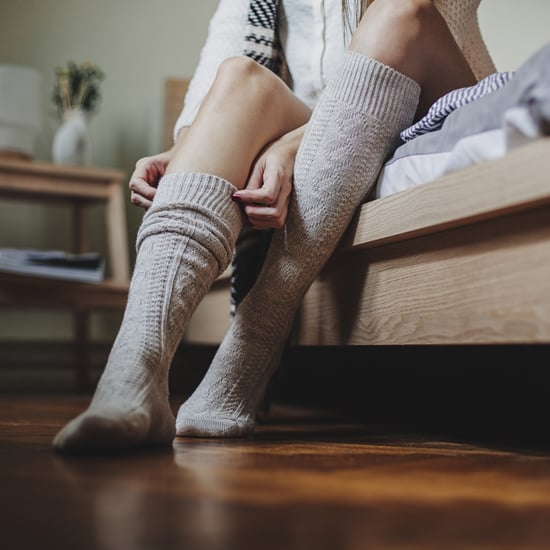Is It Bad For Your Health to Stay Up Too Late at Night?
Staying Up Too Late May Have a Scary Side Effect — What 1 Doctor Wants You to Know

When it comes to staying up late at night, you might wonder if those extra hours awake could be damaging to your health. When it reaches 10 p.m., and then 11 p.m., and so forth, it might become harder to fall asleep, and if you're setting your alarm for just a few hours later, you could be missing out on valuable sleep. Yet if you're still reaping those seven to eight hours of nightly shut-eye, are you OK? Here's what you need to know about sleeping patterns and whether or not you're fine staying up a few hours into the night binging on Netflix.
It It Dangerous?
It could be. "A recent study published in the journal Chronobiology International demonstrated that night owls — people who stayed up late and went to bed late — had a 10 percent higher chance of dying than 'morning people,' otherwise known as larks," Dr. Robert Glatter, MD, an assistant professor of emergency medicine at Northwell Health and attending emergency physician at Lenox Hill Hospital, told POPSUGAR. The study included 433,000 adults (ages 38-73) who were tracked for about six and a half years, but it had some limitations, he said, and "while it did note an adverse effect on life expectancy, one of the main concerns is that it only studied people in a single country and only looked at one outcome — death," he explained.
Still, it's something to think about, as well as considering other factors that could be affected by going to bed too late at night. "There are many other variables that are important to evaluate such as effect on blood pressure, lipids, weight gain, and risk for developing metabolic syndrome. That said, this study builds on concerns that lack of sleep and eating late at night both have adverse effects on your metabolism, potentially leading to metabolic syndrome," he said.
Metabolic syndrome — characterised by elevated blood pressure, cholesterol, and insulin resistance — significantly raises your risk of both heart attack and stroke. One of the main concerns about staying up late is the potentially adverse effects on your circadian rhythm, he explained. "This ultimately relates to adrenal gland function and affects the timing and release of cortisol, an important determinant and regulator of blood sugar and blood pressure," he said.
Glatter said that as long as you get an adequate amount of sleep, meaning if you go to bed super late but can wake up later in the morning to get your seven to eight hours, you'll be OK. It's more about skimping on sleep from staying up too late and waking up at an early hour, where you're getting six or fewer hours, where you're at greater risk of metabolic syndrome and the host of conditions it can bring. It's also about sticking to a regular routine, so if you do go to bed late and wake up on the later side, maintain that schedule. Having inconsistent bedtimes and morning alarm settings can cause damage to your body, based on the lack of routine in circadian rhythms.
Any Benefits?
There might be. Glatter said, "It's conceivable that if you are a night owl — and programmed this way from a genetic standpoint — this may be optimal for you to perform at your best." You might also be more creative when you're staying up later and using your noggin in the evening. "It's entirely possible as well that being a night owl may actually confer an advantage in terms of intelligence and creativity," he said. "Other studies have suggested that night owls demonstrate greater creativity and insight and often score higher on tests that evaluate deductive reasoning."
The Takeaway
As long as you're getting enough zzz's, stay up however late you like if it works for you. However, Glatter has a tip: eat something light if you're noshing late at night. If you are eating heavy meals, it'll make it harder to fall asleep (and lead to worsened digestion), and it could raise your insulin levels, leading to metabolic syndrome after all, he said.
"If you do keep late hours, stick with foods that are easy-to-digest, healthy carbs but not excessive amounts of protein, fibre, or fat. Greek yogurt with some berries and nuts (almonds or walnuts) are a light and healthy snack. Fresh vegetables or a few slices of lean turkey are also a good choice," he said.
If you're too stimulated when you try to hit the hay and your tummy is rumbling, "a bowl of steel-cut oatmeal is an excellent night snack, which can help you sleep well if you are tossing and turning," he said. It is an excellent source of fibre, and it also has beta-glucan, which may stabilise your cholesterol as well, he added.







